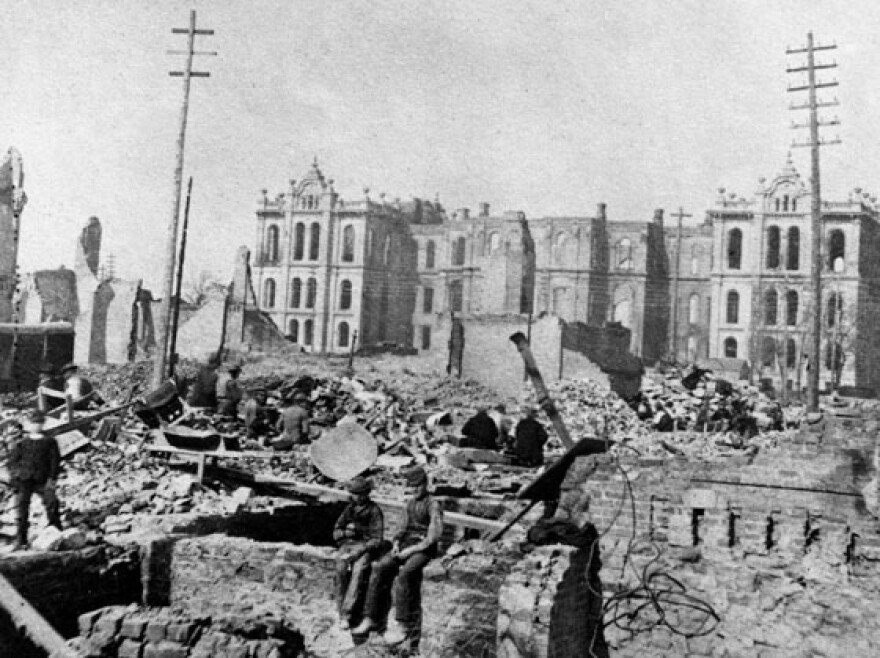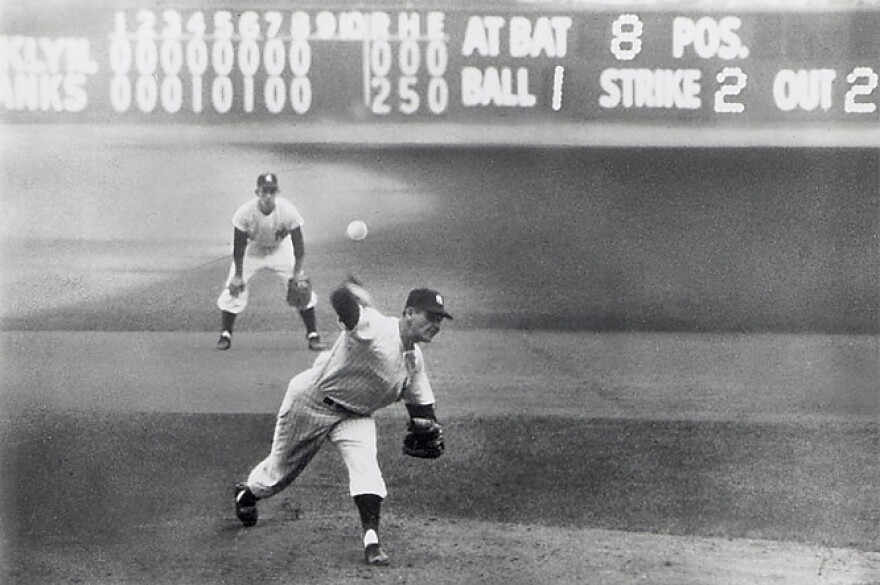- 281st Day of 2013 / 84 Remaining
- 74 Days Until The First Day of Winter
- Sunrise:7:12
- Sunset:6:41
- 11 Hours 29 Minutes of Daylight
- Moon Rise:11:08am
- Moon Set:9:28pm
- Moon’s Phase: 17 %
- The Next Full Moon
- October 18 @ 4:37pm
- Full Barley Moon
- Full Hunter’s Moon
This full Moon is often referred to as the Full Hunter’s Moon, Blood Moon, or Sanguine Moon. Many moons ago, Native Americans named this bright moon for obvious reasons. The leaves are falling from trees, the deer are fattened, and it’s time to begin storing up meat for the long winter ahead. Because the fields were traditionally reaped in late September or early October, hunters could easily see fox and other animals that come out to glean from the fallen grains. Probably because of the threat of winter looming close, the Hunter’s Moon is generally accorded with special honor, historically serving as an important feast day in both Western Europe and among many Native American tribes.
- Tides
- High:2:04am/1:22pm
- Low:7:12am/8:09pm
- Rainfall (measured July 1 – June 30)
- Normal To Date:0.40
- This Year:0.02
- Last Year:0.44
- Annual Seasonal Average:23.80
- Holidays
- Alvin C. York Day
- National Pierogy Day
- National Fluffernutter Day
- Universal Music Day
- Independence Day-Croatia
- Navy- Day-Peru
- On This Day In …
- 1871 --- Flames spark in the Chicago barn of Patrick and Catherine O'Leary, igniting a two-day blaze that kills between 200 and 300 people, destroys 17,450 buildings, leaves 100,000 homeless and causes an estimated $200 million (in 1871 dollars; $3 billion in 2007 dollars) in damages. Legend has it that a cow kicked over a lantern in the O'Leary barn and started the fire, but other theories hold that humans or even a comet may have been responsible for the event that left four square miles of the Windy City, including its business

district, in ruins. Dry weather and an abundance of wooden buildings, streets and sidewalks made Chicago vulnerable to fire. The city averaged two fires per day in 1870; there were 20 fires throughout Chicago the week before the Great Fire of 1871. Despite the fire's devastation, much of Chicago's physical infrastructure, including its water, sewage and transportation systems, remained intact. Reconstruction efforts began quickly and spurred great economic development and population growth, as architects laid the foundation for a modern city featuring the world's first skyscrapers. At the time of the fire, Chicago's population was approximately

324,000; within nine years, there were 500,000 Chicagoans. By 1893, the city was a major economic and transportation hub with an estimated population of 1.5 million. That same year, Chicago was chosen to host the World's Columbian Exposition, a major tourist attraction visited by 27.5 million people, or approximately half the U.S. population at the time. In 1997, the Chicago City Council exonerated Mrs. O'Leary and her cow. She turned into a recluse after the fire, and died in 1895.
- 1918 --- U.S. Corporal Alvin C. York almost single-handedly killed 25 German soldiers and captured 132 in the Argonne Forest in France. York had originally tried to avoid being drafted as a conscientious objector. After this event his was promoted to sergeant and was awarded the Congressional Medal of Honor.
- 1938 --- The Saturday Evening Post portrayed Norman Rockwell. The illustrator chose to picture himself trying to come up with a

cover concept and to complete the assignment before the magazine’s deadline.
- 1944 --- "The Adventures of Ozzie and Harriet" debuted on CBS Radio.
- 1945 --- President Harry S. Truman announced that the secret of the atomic bomb would be shared only with Britain and Canada.
- 1956 --- The first completely enclosed shopping mall, Southdale Shopping Center opens in Edina, Minnesota.

- 1956 --- New York Yankees right-hander Don Larsen pitches the first no-hitter in the history of the World Series. Even better, it was a perfect game--that is, there were no runs, no hits and no errors, and no batter reached first base. Larsen’s performance anchored his team’s third-straight win against their cross-town rivals the Brooklyn Dodgers. The Yanks ended up winning the championship, the last all-New York World Series until 2000, in seven games. Larsen was an uneven pitcher, and before the 1956 championship he was mostly known for being a hard drinker and an enthusiastic carouser.

Because of a bad start in the second game of the World Series, he wasn’t even sure he’d pitch another game. In fact, he found out he’d be heading to the mound in Game 5 when he got to the clubhouse on the morning of October 8 and found that manager Casey Stengel had left a ball in his locker, wedged inside his cleat. But that night, in front of a crowd of 61,519 people at Yankee Stadium, Don Larsen found his muse. He retired 27 batters--among them future Hall of Famers Roy Campanella, Pee Wee Reese, Jackie Robinson and Duke Snider, along with the always-dangerous Gil Hodges--in 97 pitches.
- 1957 --- The Brooklyn Baseball Club announced that it had accepted a deal to move the Dodgers to Los Angeles.
- 1959 --- Margaret Thatcher was first elected to the British

Parliament as a Conservative representing the north London suburb of Finchley.
- 1966 --- The U.S. Government declared that LSD was dangerous and an illegal substance.
- 1970 --- The best-known living Russian writer, Aleksandr Solzhenitsyn, wins the Nobel Prize for literature. Born in 1918 in the Soviet Union, Solzhenitsyn was a leading writer and critic of Soviet internal oppression. Arrested in 1945 for criticizing the Stalin regime, he served eight years in Russian prisons and labor camps.

Upon his release in 1953 he was sent into "internal exile" in Asiatic Russia. After Stalin's death, Solzhenitsyn was released from his exile and began writing in earnest. His first publication, One Day in the Life of Ivan Denisovich (1963), appeared in the somewhat less repressive atmosphere of Nikita Khrushchev's regime (1955-1964). The book was widely read in both Russia and the West, and its harsh criticisms of Stalinist repression provided a dramatic insight into the Soviet system. Eventually, however, Soviet officials clamped down on Solzhenitsyn and other Russian artists, and henceforth his works had to be secreted out of Russia in order to be published. These works included Cancer Ward (1968) and the massive three-volume The Gulag Archipelago, 1918-1956 (1973-1978). The Soviet government further demonstrated its displeasure over Solzhenitsyn's writings by preventing him from personally accepting his Nobel Prize in 1970. In 1974, he was expelled from the Soviet Union for treason, and he moved to the United States. Although celebrated as a symbol of anticommunist resistance, Solzhenitsyn was also extremely critical of many aspects of American society; particularly what he termed its incessant materialism. He returned to Russia in 1994. Solzhenitsyn died of heart failure in Moscow on August 3, 2008. He was 89.
- 1971 --- "Imagine" was recorded by John Lennon.
- 1980 --- Bob Marley collapsed onstage during a show in Pittsburgh, PA. It was the last show he would ever perform. He died seven months later of cancer.
- 1982 --- All labor organizations in Poland, including Solidarity, were banned.
- 1991 --- A U.S. District Court in Anchorage, Alaska, approved a $900-million settlement (annual payments stretched over ten years) with Exxon Shipping Company (Exxon Oil Corporation) for the

Valdez oil spill. Exxon also agreed to pay a $250-million fine, which would reimburse the state of Alaska and the U.S. for the costs of cleanup, damage assessment and litigation.
- 1998 --- Outspoken Portuguese novelist Jose Saramago won the Nobel Prize in Literature. Saramago, first writer in Portuguese to receive the award, received $950,000. In its citation, the Swedish Academy said it gave the award to Saramago for work that “with parables sustained by imagination, compassion and irony continually enables us to apprehend an illusory reality.”
- 2002 --- A federal judge approved U.S. President George W. Bush's request to reopen West Coast ports, to end a caustic 10-day labor lockout. The lockout was costing the U.S. economy an estimated $1 billion to $2 billion a day.
- 2004 --- Lifestyle guru Martha Stewart reported to prison to begin serving a sentence for lying about a stock sale.
- Birthdays
- Jesse Jackson
- Chevy Chase
- Sigourney Weaver
- Darrell Hammond
- Stephanie Zimbalist
- Bruno Mars
- Juan Peron
- Matt Damon
- Paul Hogan
- David Carradine
- Frank Duryea
- Edward V. Rickenbacker

